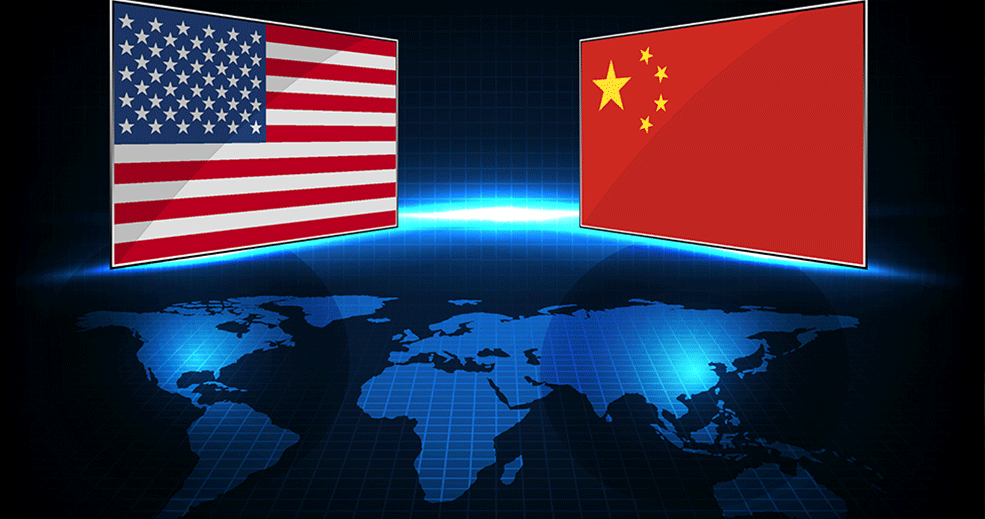
Xi Jinping’s visit to San Francisco is both politically and economically important
In what was a long-awaited meeting, Xi Jinping and Joe Biden spoke for more than four hours on the fringes of the APEC (Asia-Pacific Economic Cooperation) summit in San Francisco. They last met at the Indonesian G20 summit in Bali over a year ago – an eternity in diplomatic terms – but Nancy Pelosi’s trip to Taiwan and the spy balloon affair had since put further strain on US-China relations.
Although no press release was forthcoming after the meeting, both parties said they were pleased with how it went. The United States said progress had been made on combating exports of fentanyl, a synthetic drug responsible for the deaths of over 120,000 Americans this year alone, as well as on reopening military communication channels.
However, progress on the thorniest issues was noticeably lacking. On Taiwan, where a presidential election is due to be held in January, China struck a harsh tone, reiterating that it would “realise reunification, and this is unstoppable”. Nor did Xi Jinping win any concessions on semiconductor export restrictions, with China accusing the US of hampering its technological development in the sector. Lastly, nothing was said about the levels of reciprocal import tariffs, imposed during Donald Trump’s trade war and kept in place even after the two countries signed a Phase One agreement in January 2020.
To attract new foreign capital, China must bounce back
But Xi Jinping’s visit wasn’t just about talks with Joe Biden: it was also about meeting US investors. Around 400 business leaders attended a gala dinner with the Chinese president. With foreign direct investment (FDI) into China turning negative in the third quarter of 2023 for the first time since this indicator began to be tracked (1998), now is, above all, a time for economic appeasement. After a wait-and-see phase, foreign firms investing in China have opted to repatriate their profits rather than reinvest in the country – a sign that they do not expect the macroeconomic and geopolitical backdrop to improve substantially in the short term.
By coincidence, the leading US pension fund (the Federal Retirement Thrift Investment Board), which manages $771 billion in assets on behalf of nearly 7 million retirees, chose this moment to announce that it was planning to withdraw from all indices that include companies listed in China or Hong Kong. With US fund managers – particularly those managing funds linked to public authorities – coming under increasing political pressure over the past five years, the poor performance of Chinese indices so far this year has finally convinced some of them to pull the plug.
Capital outflows have thus quickened since the beginning of 2022, with investors expecting interest rates to remain lastingly lower in China and lastingly higher in the US, despite recent US inflation numbers fuelling hopes that monetary policy might be eased sooner than expected.
Economic conditions remain hard to read
As regards economic activity, Chinese figures continue to point to lacklustre performance: helped by a favourable base effect, retail sales (up 7.6% year on year in October) and industrial production (up 4.6%) have tended to exceed consensus expectations, but investment and the real estate sector continue to fall short despite the latest stimulus measures announced by the authorities. This dichotomy is reflected in household consumption: while spending on services and leisure is quickening, spending on construction materials is slowing.
Foreign trade also continues to normalise after two years of record performance: exports were down 6.4% and imports 4.5% year on year in October, and the trade balance has fallen back below $800 billion after reaching nearly $1 trillion in April.
By deviating from its usual budget deficit target (3.8% of GDP in 2023, instead of 3%), Beijing was keen to send out a message that stabilising growth was still a priority. However, in targeting infrastructure investment, this fiscal stimulus is failing to target the Chinese economy’s structural weaknesses. The IMF’s revised growth forecasts (5.4% instead of 5% for 2023 and 4.6% instead of 4.2% for 2024) factor in this 0.8% fiscal stimulus but assume it will not have much of a knock-on effect.
Above all, real estate indicators, which once again contracted in October, point to the breadth and depth of the crisis in the sector and raise questions as to just how far it might yet fall. Total square footage sold over the last 12 months was down 6.8% in October, compared with 6.3% in September, while new construction was down 24.1% (vs. 24.4% in September), indicating that, rather than new projects being kicked off, inventory and accumulated overcapacity are still being sold off.
The fact that the Xi-Biden meeting took place at all is a step forward. By setting out his agenda, Joe Biden took the risk of coming home empty-handed. In the end, he secured progress on both the key issues he put forward: the resumption of military dialogue, interrupted since Nancy Pelosi’s escapade in Taiwan, and controlling exports of components of fentanyl, which continues to devastate US cities including San Francisco. Elsewhere, though, cooperation between China and the US remains tentative: climate-related discussions will resume but there has been no progress on semiconductors and even less on Taiwan, where a surprise alliance between two more Beijing-friendly candidates could scupper the chances of current vice president Lai Ching-te, who favours taking a harder line with Beijing, in January’s presidential election.
Beyond its important symbolic value, Xi Jinping’s visit was also about signalling openness to US firms at a time when FDI into China has slowed worryingly and China is set to lose its place as the United States’ primary trading partner to Mexico in 2023. While the extent of US disengagement from China is still difficult to assess, partly because accounting for FDI by nationality is complicated by the use of holding companies often located in non-cooperative jurisdictions and partly because the complexity of value chains makes it hard to trace each and every component of manufactured goods, the attention Xi Jinping is paying to US firms underlines their importance to the Chinese economy.






